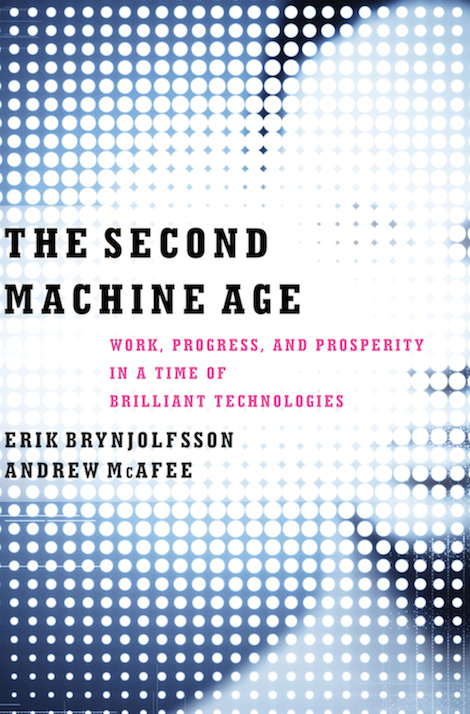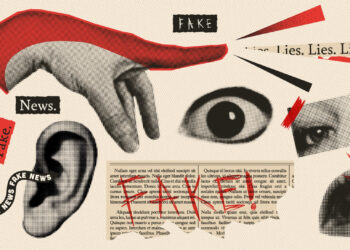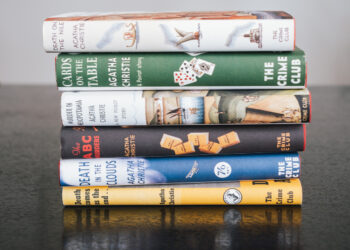Continuing an annual tradition, we take a moment to pause at year’s end to look back on the best books we encountered. As always, this is not a “best books of 2014″ list, but a list of the best books the Chefs read during 2014 — the books might be classics, a few years old, or brand new. This is one of the great things about books in all forms — they endure, invite visitation and revisitation, and beckon with ideas. Here’s Part 1 of our list, Part 2 will post tomorrow.
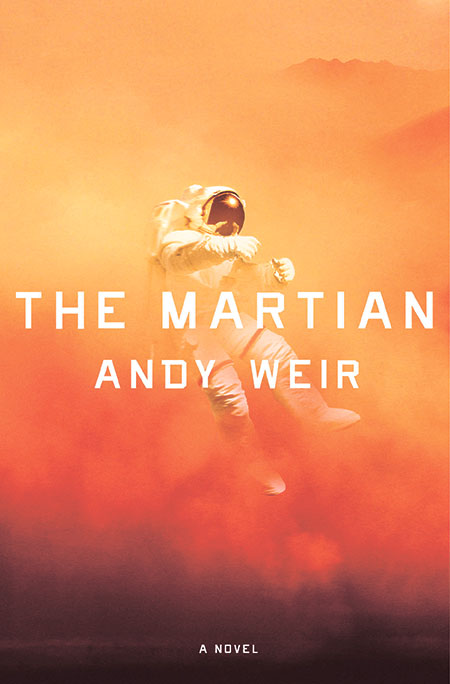 Kent Anderson: My favorite book choice may suffer from an availability error — it is the last book I read — but still qualifies nicely for this year’s roundup nonetheless. It is The Martian by Andy Weir, a new work of science fiction with more science than usual.
Kent Anderson: My favorite book choice may suffer from an availability error — it is the last book I read — but still qualifies nicely for this year’s roundup nonetheless. It is The Martian by Andy Weir, a new work of science fiction with more science than usual.
The novel follows astronaut Mark Watney from the moment he regains consciousness after a set of freak accidents leave him stranded on Mars and presumed dead. Using a combination of engineering, botany, and chemistry, he has to deal with his Martian hierarchy of needs — food, shelter, air, warmth, and, sadly, a batch of 1970s sitcoms and a raft of disco MP3s.
Written in an engaging and sometimes hilarious voice, the book stays mainly with Watney, but also grows to include Earthlings at NASA, his crewmates, and the media. Weir himself is a science nerd who plans detailed space journeys in his spare time, and the level of granularity in some of the sections about how to mix certain chemicals to achieve a necessary result may seem tedious to some, but they lend a credibility to the novel while making the “science” in this “science fiction” quite approachable and probably reproducible.
The book started out as a self-published affair before becoming a Kindle bestseller, a property of Random House, and soon a major motion picture starring Matt Damon. There are a few sections where the self-publishing heritage pokes through, but they are easily overwhelmed by a narrative that has plenty of momentum, some great twists that draw on science and situation, and a growing unease about the novel’s resolution as setbacks mount and options dwindle. That is, things get tense.
The book is rife with fun-loving cursing, so it’s not for kids who might be offended by such salty language (or parents who might feel protective over such things), but it is high-quality cursing overall, with some colorful turns of phrase, a favorite coming near the end.
I devoured this novel in about three afternoons, and would recommend it for a snowy day or a vacation away. It’s a blast to read, and you’ll be glad you got to know Mark Watney, the Martian.
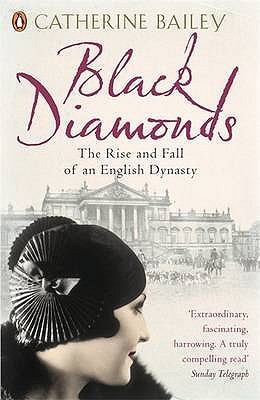 Jill O’Neill: My selection for best book read in 2014 is Black Diamonds: The Rise and Fall of an English Dynasty. This may be a bit of a cheat in terms of timing, as the book was originally released in the U.K. in 2007. However, Amazon indicates that an American paperback edition will be released on December 30th, and for those with an interest in cultural heritage and social history, this is a great addition to your To-Be-Read pile in 2015.
Jill O’Neill: My selection for best book read in 2014 is Black Diamonds: The Rise and Fall of an English Dynasty. This may be a bit of a cheat in terms of timing, as the book was originally released in the U.K. in 2007. However, Amazon indicates that an American paperback edition will be released on December 30th, and for those with an interest in cultural heritage and social history, this is a great addition to your To-Be-Read pile in 2015.
The book is about the Fitzwilliam family, until recently owners of the largest privately-held country house in England, the Wentworth Woodhouse structure in Yorkshire. The house boasts 365 rooms and a facade twice the length of Buckingham Palace, but has fallen into sad disrepair, due in large part to the events described in Black Diamonds.
The history of the family features the stuff from which bodice-rippers are crafted. Focused primarily on the family as it enters the twentieth century, there are questionable male heirs, bad marriages, unverified marriages, tragic deaths, and a long series of sad and sensational lawsuits. Even in the most excessive of societies, one can’t quite believe that this would go on. But it was economics rather than questions of legitimacy that caused the downfall of this aristocratic family as the needs of Britain shifted in the wake of two World Wars. The Fitzwilliams were held up as representatives of a spendthrift, aristocratic class that exploited workers and embarrassed a government keen on developing a robust middle-class. The substantial fortune that supported the Earldom was drawn from 120 Yorkshire collieries and in the course of managing the nation’s coal supply, one particularly resentful minister proceeded to open up veins nearly to the foundations of the house itself, causing mining subsidence that is the root of even more lawsuits extending to today.
I imagine the publisher sees the release of this backlist title as appealing to a US market enthralled by the romanticism of Downton Abbey. There’s some of that in this social history, but the record of personalities and events is sufficiently compelling without resorting to costume drama. Sadly, not covered to any extent in this volume, was the destruction of the family record by fire, ordered by the 10th and final Earl in the early ’70’s. Newspaper accounts at the time indicate that the conflagration went on for three full weeks, the move of a dysfunctional family to control perceptions of its final legacy. (While the burning prevented any cheap exploitation of tragic secrets, the effort seems an act of angry revenge against any government institution that might have attempted to exert spin on the historical record.) Using remaining public records, diaries of guests and other eyewitnesses, interviews with extended family, and newspaper accounts, author Catherine Bailey provides the right level of historical context in this family history. I could not put it down.
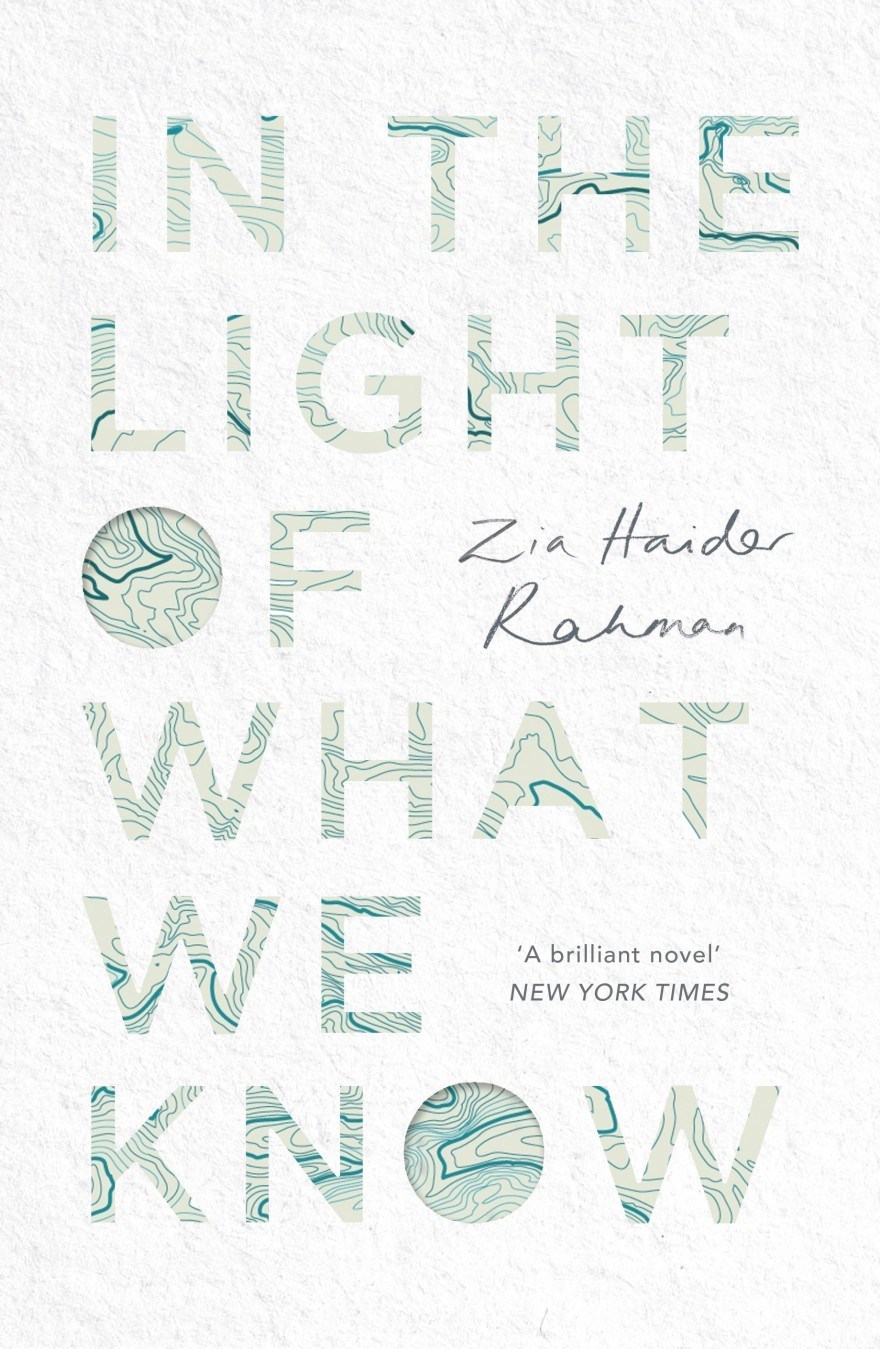 Robert Harington: What a strange reading year it was. First, I read less this year than ever before. Perhaps it was just lack of time, but really that is not a reason. Perhaps I reached saturation point on input, when all I really wanted was to be drip fed information relevant to me. It is certainly true that I turn to fiction as a first choice read. Apparently this makes me more empathetic to others. A study published in October 2013 in Science indicates that by reading literary fiction, not so much the trashy stuff, our ability to relate to others’ mental states is enhanced – this is the Theory of Mind.
Robert Harington: What a strange reading year it was. First, I read less this year than ever before. Perhaps it was just lack of time, but really that is not a reason. Perhaps I reached saturation point on input, when all I really wanted was to be drip fed information relevant to me. It is certainly true that I turn to fiction as a first choice read. Apparently this makes me more empathetic to others. A study published in October 2013 in Science indicates that by reading literary fiction, not so much the trashy stuff, our ability to relate to others’ mental states is enhanced – this is the Theory of Mind.
This leads to my recommendation that if you only read one book for the holidays, you should read this one, if only to enhance your ability to deal with difficult relatives over the festive period. In the Light of What We Know is Zia Haider Rahman’s debut novel. It is a masterpiece. Rahman overtly looks to W.G. Sebald for inspiration and borrows from one of my favorite of Sebald’s books, Austerlitz. The stories share the conceit of a narrator and a long out-of-touch friend that suddenly reappears, looking and sounding completely different, with a remarkable story to tell.
In Austerlitz there was a narrator that you could feel deeply for, especially as he demonstrates a sense of lost memory, only later in life discovering his Jewish origins – an interesting, and understandable mental block that as a plot device reads like a mystery. In Rahman’s book, the hero, Zafar is a mathematician (another reason I was attracted to this book), and studied in Oxford (yup – me too). His story is sad, elegant, uplifting, restless and deep. For a really good review of the book, turn to The New Yorker and a review by James Wood. This is a fantastic book. It was one of those rare moments when a book appears that sits squarely in one’s reading sweet spot.
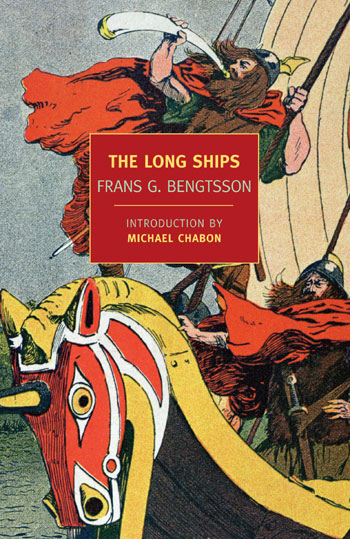 Joe Esposito: Two books: one fiction, one nonfiction.
Joe Esposito: Two books: one fiction, one nonfiction.
The fiction choice is easy: The Long Ships by Franz Bengsston. This is one of the finest novels I have read. It was written in Swedish in two parts (1941 and 1945), and is based in part on the old Icelandic sagas. It is full of adventure and at times exceptionally funny. I have been recommending it to anyone who would listen, and they have all come back to thank me.
A more sober choice is The Second Machine Age by Erik Brynjolfsson and Andrew McAfee. The thesis is that information technology is going to have an enormous impact on productivity, which will create wealth on an order not previously seen. But these riches will increasingly be unevenly distributed, posing a threat of mass unemployment. I found the argument about how machines will put people out of work to be persuasive. Unfortunately, the sections on how we as a society can and should deal with this is less convincing.
Discussion
1 Thought on "Chefs’ Selections: The Best Books Read During 2014 Part 1"
